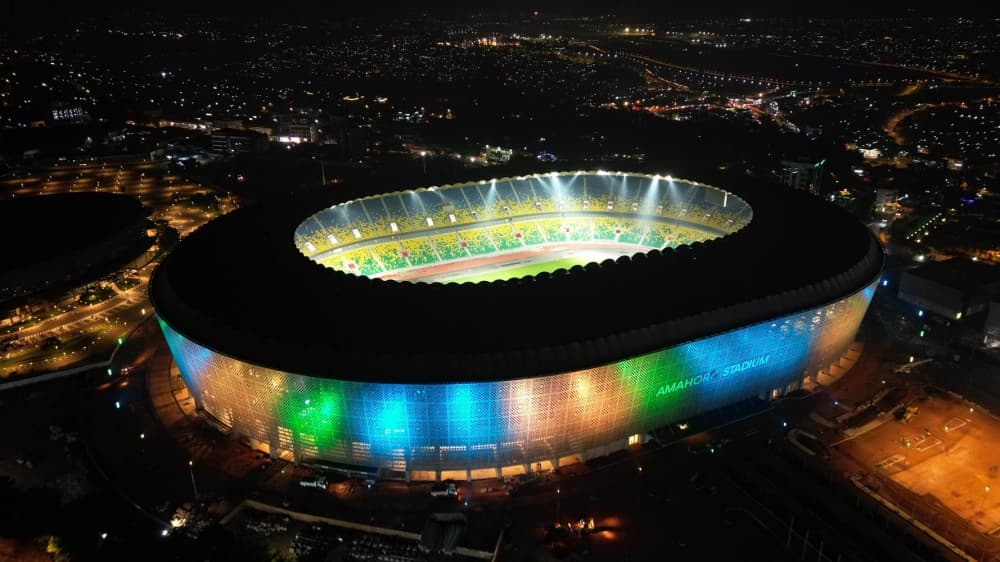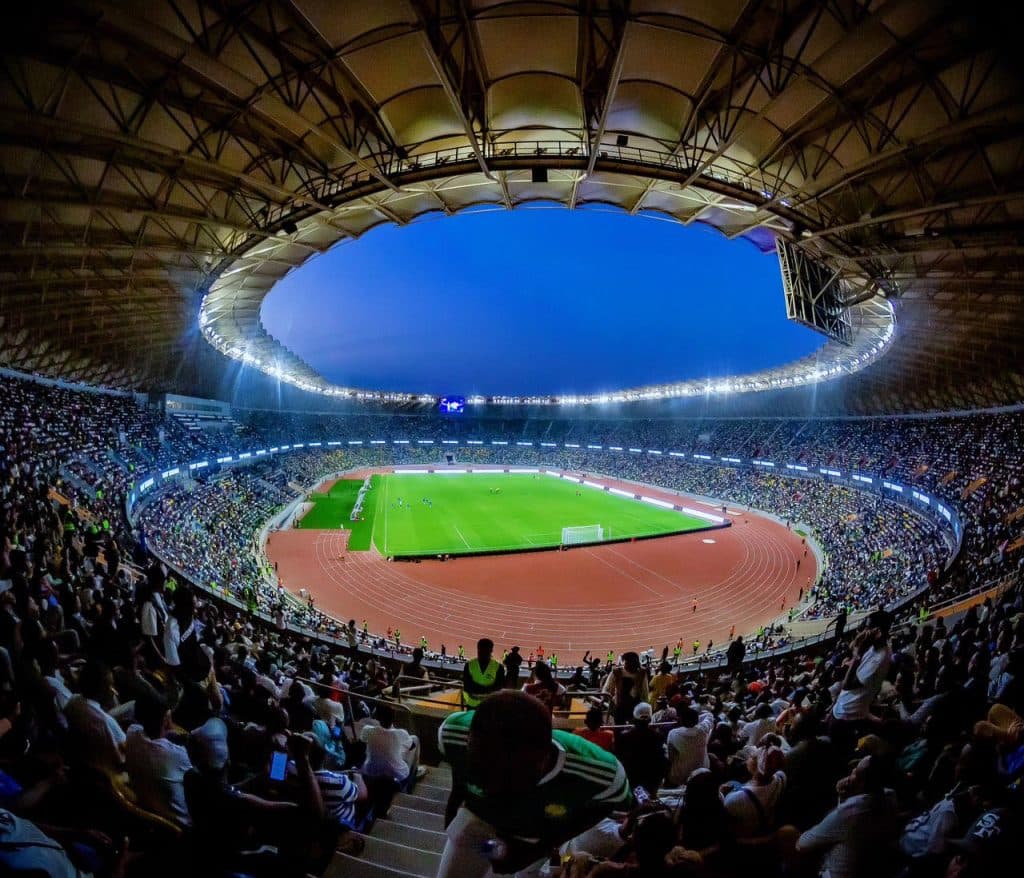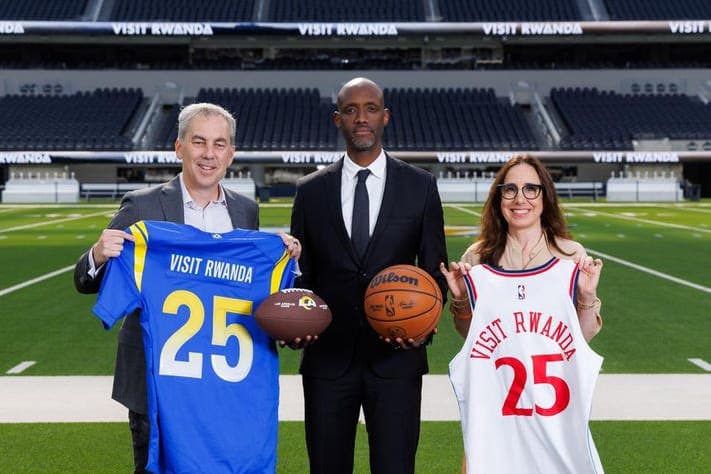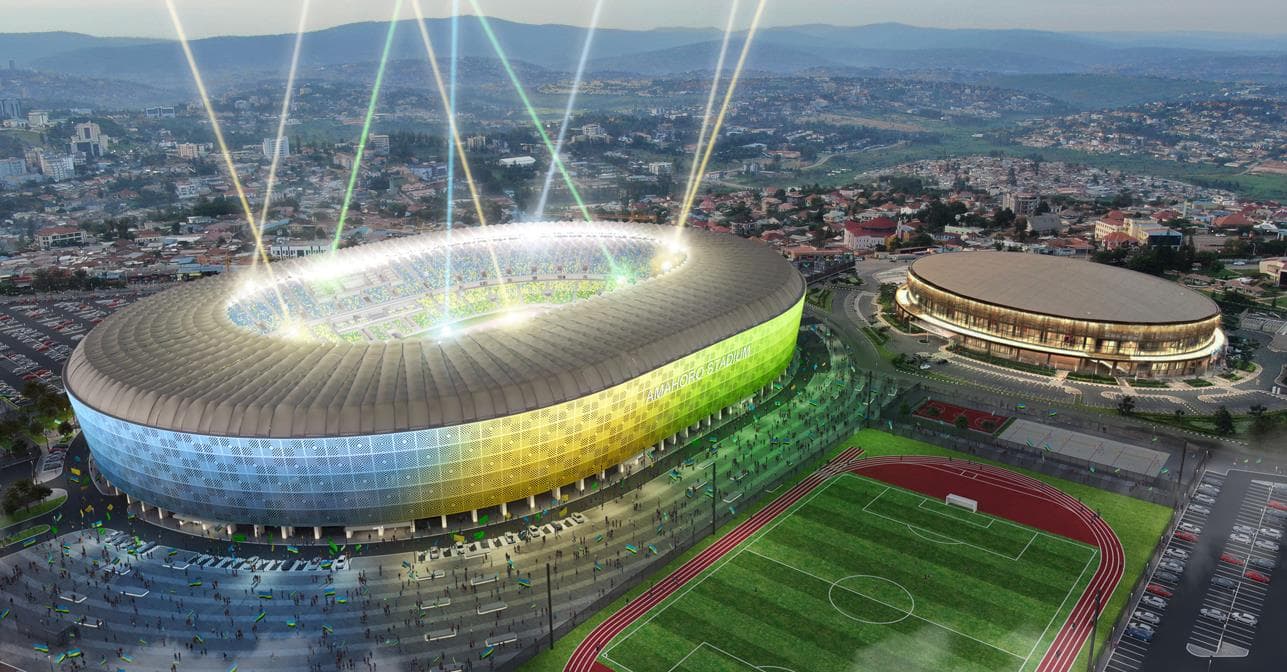Rwanda’s Sporting Revolution: How a New Stadium and Global Partnerships Are Redefining the Nation’s Image

Rwanda is quickly emerging as a continental hub for sports, tourism, and international partnerships, thanks to major investments in modern infrastructure and strategic global collaborations. At the center of this transformation is the newly refurbished Amahoro National Stadium in Kigali and Rwanda’s expanding partnerships with world-renowned sports teams, including Arsenal Football Club and major basketball and American football teams in the United States.
The Amahoro National Stadium, recently reopened after a massive renovation, stands as a symbol of Rwanda’s commitment to sports excellence and modern development. With its seating capacity increased from 25,000 to over 45,000, the stadium now meets FIFA and CAF international standards, making it the largest and most advanced sporting facility in the country.

The upgrade, costing an estimated 165 million US dollars, includes new VIP areas, restaurants, commercial spaces, accessible facilities for people with disabilities, and improved seating and roofing for spectators. It also boasts a world-class athletics track and better road access, positioning Kigali to host major international events such as AFCON qualifiers, regional tournaments, and global concerts. Beyond sports, the project is expected to stimulate economic growth by creating jobs, boosting tourism, and promoting business opportunities within the surrounding areas.

Complementing these infrastructural strides is Rwanda’s expanding use of sports as a tool for global branding and diplomacy. The government, through the Rwanda Development Board under the “Visit Rwanda” initiative, has maintained and extended its partnership with Arsenal Football Club in England. The “Visit Rwanda” logo remains proudly displayed on Arsenal’s men’s, women’s, and youth team jerseys.
Beyond visibility, the partnership includes football development programs that bring Arsenal coaches to Rwanda for training camps and community engagement. The initiative is designed to promote Rwanda’s tourism, culture, and investment potential while inspiring local youth through sports development.
In a bold move to expand its reach beyond Europe, Rwanda recently entered the American sports market through long-term deals with the Los Angeles Clippers of the NBA and the Los Angeles Rams of the NFL. Under these agreements, “Visit Rwanda” becomes the exclusive jersey patch sponsor for the Clippers and a major promotional partner of the Rams at SoFi Stadium.

The partnerships go beyond branding, they include youth training exchanges, court refurbishments in Rwanda, and community engagement programs aimed at developing basketball and football talent within the country. These collaborations are expected to expose Rwanda to millions of fans across the U.S. and globally, enhancing the country’s visibility as a tourist and investment destination.
Together, these developments demonstrate a calculated national strategy that merges sports, tourism, and diplomacy. By building world-class facilities and aligning with international sports brands, Rwanda is positioning itself as a model for how nations can leverage sports to advance economic and social progress.
However, the country also faces challenges such as maintaining the high costs of such infrastructure, ensuring long-term sustainability, and addressing international criticism surrounding its political and human rights record.

Still, Rwanda’s vision is clear: to use sports as a bridge to global recognition and national unity. The new Amahoro Stadium and international partnerships with Arsenal, the LA Clippers, and the LA Rams are not just about games—they are about crafting a legacy of pride, progress, and possibility for the people of Rwanda.
